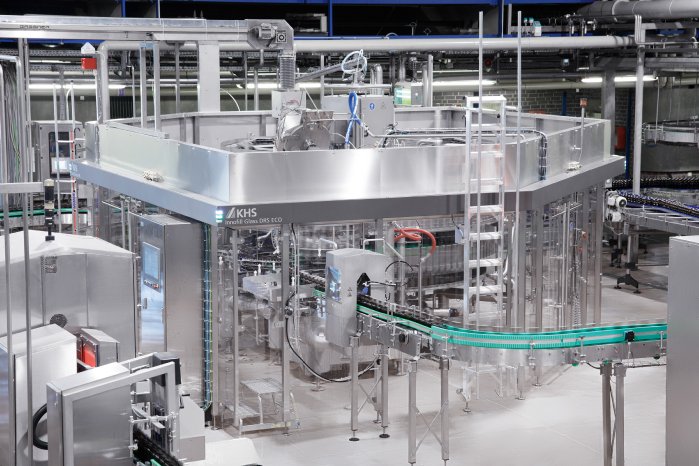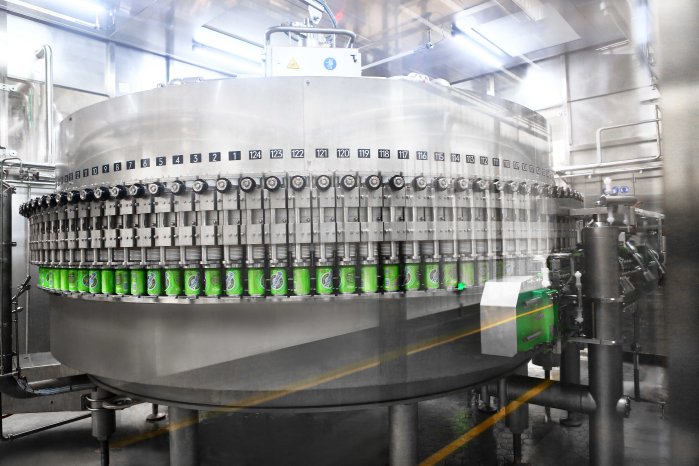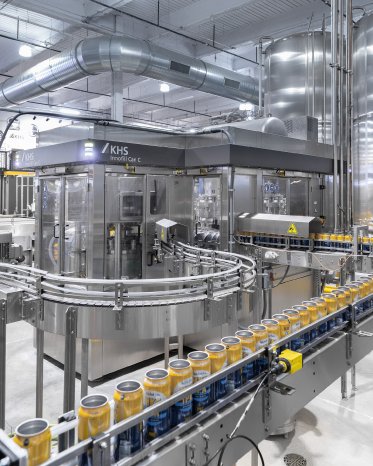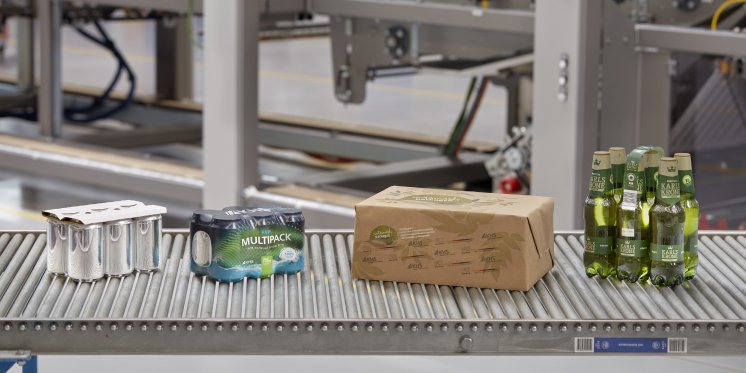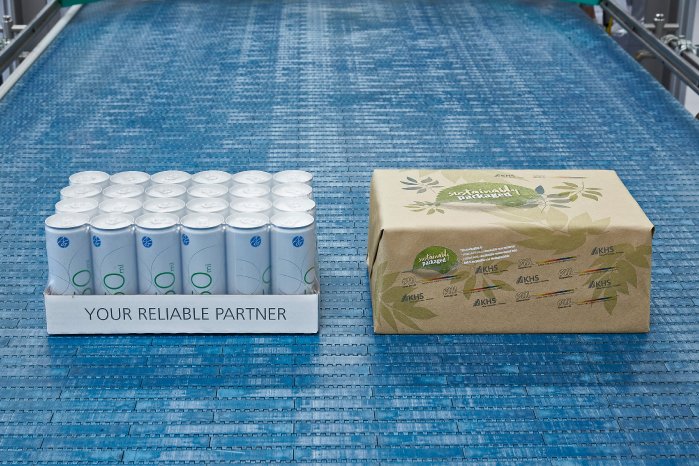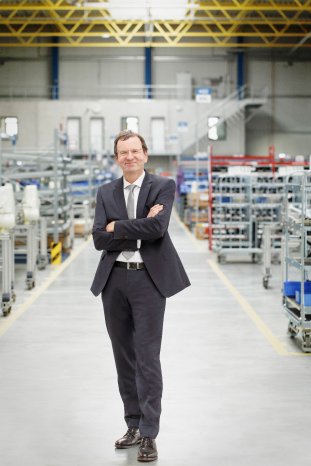At the beginning of 2020 the corona crisis forced the events industry to shut down. For almost two years countless trade shows, conferences and congresses fell victim to the pandemic or were held in a purely digital form. In Beviale Summit the event organizers at BrauBeviale have created a new format for this year. Devised as a ‘marketplace’, the congress aims to bring the brewing and beverage industry back together. “We welcome this decision with all our hearts and are delighted to be able to finally again talk to our customers and partners face to face – even if understandably on a smaller scale,” says Dr. Johannes T. Grobe, CSO of the KHS Group. “We’ve been a close partner to BrauBeviale for many decades and value the trade show as a major hub for direct communication and the transfer of knowledge. We need to stick together, especially when times are hard. We’re thus extremely pleased that we can again inform the trade of our technical new and further developments in person.”
Modern filling technology sets standards
Visitors can look forward to the turnkey supplier’s proven high-performance, sustainable filling technology among other things. KHS’ presence at the show will center on the high-capacity Innofill Glass DRS ECO filler that made its first appearance at BrauBeviale in 2019. Since then, the modular filling system has set standards in consumption values and product quality in practical operation. OeTTINGER Brewery in Mönchengladbach, Germany, is the most recent customer to benefit from its impressive increase in efficiency and unadulterated beer taste. The filler is compelling with its low CO2 consumption of just 160 grams per hectoliter for a total oxygen pickup of 22 ppb[1] – a figure that is absolutely unique. For a value of 40 ppb around 110 grams of CO2 per hectoliter are needed – and thus up to 60% less than in direct market comparison.
In the constantly growing can segment KHS’ particularly flexible Innofill Can DVD and C score on many fronts. Designed to cater for a broad spectrum of beverages and formats, both are distinguished by their high standard of hygiene both inside and outside the machine – an aspect that is becoming increasingly important in view of the trend towards beers and mixed beverages with less or no alcohol. While the Innofill Can DVD operates in the high-capacity range of up to 135,000 cans per hour, its little brother is now proving convincing with an output of up to 60,000 cans per hour. Thanks to this increased capacity, with immediate effect the Innofill Can C can be even more easily integrated into lines with higher outputs, especially in combination with process engineering such as the Innopro Paramix C blending system, a flash pasteurizer or the CIP module.
Sustainable packaging systems for every requirement
Besides its modern filling technology KHS will also be exhibiting its portfolio of environmentally-friendly packaging systems in Nuremberg – among them the flexible Innopack Kisters Wrap-aroundShrinkPaperPacker (WSPP A) packaging machine, that can wrap beverage cans in either paper, cardboard or film as required, and the resource-conserving Nature MultiPack. Another future-proof alternative is the powerful Innopack Kisters CNP or Carton Nature Packer that turns beverage cans into stable packs using toppers or clips made of corrugated cardboard or solid board. It is now also possible to process film made of 100% recyclate on all Innopack Kisters machinery – without any loss in quality or performance.
KHS packaging machines are also very flexible as they feature a modular design, enabling machines to be converted or retrofitted without any great amount of effort. Existing packers can therefore be easily supplemented by a paper wrapping and a paper folding and gluing module. In addition to the original film processing option, users can thus also wrap cans in paper. On request, an alternative full switch from shrink film to paper can be made. Just two modules have to be replaced to this end, with the machine layout staying more or less the same.
[1] ppb = parts per billion. 1 ppb is the equivalent of 1 µg per kilogram, for example
